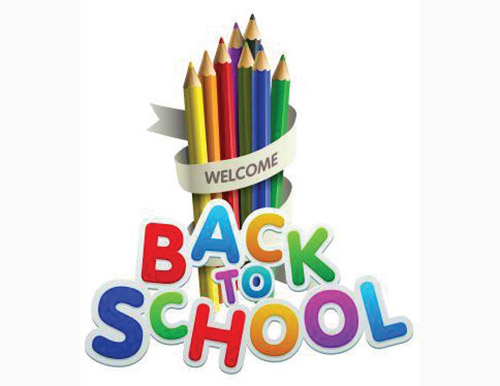
Even if your child has been in school before, each year, class and teacher is different and can present with some unique challenges. I have been talking to lots of parents in therapy sessions about the upcoming school year and I’ve noticed that they share many common concerns about getting through the first few weeks. As the summer winds down, it seems that the school year has crept up on parents, and despite their eagerness to help their kids succeed, they are not exactly sure where to start. Transitions like these are hard on both kids and parents. Below are my four top tips to help you cope with the first week back at school!
- Get Oriented: Spend some time getting acquainted with this year’s teacher, classroom and workload. At some point during the first week or two, try reaching out to your child’s teacher to check in. Ask them how your child is adjusting from their point of view. Find out how your child is feeling in their new classroom and how they’re getting along with any new kids in the class. Does this year’s class require a new approach to organizing their homework? Does their teacher have a new teaching style that your child needs some help adjusting to? Addressing these issues at the start of the school year helps ensure plenty of time to address them with your child to ensure their success for the rest of the year, and also reduces aggravation and anxiety on your part.
- Get Organized: While it’s certainly helpful to get organized before the school year starts, it’s tough to do until your child gets started and has a better sense of what the expectations are at school. Sit down with your child and review any handouts that were sent home in the first week or two of the school year. Teach them how to file things by class and due date and how to mark their homework in a planner. Depending on your child’s age and personality, create a plan for checking in on their work to see if they are staying organized. For example, if your child hands in lots of assignments late, then maybe your strategy needs some tweaking. Younger kids with little to no homework will still benefit from learning some organizational skills, but you can take a relaxed approach with them. Remember that you know your child best, so be sure to use whichever tools suit them the most, whether it is an app, labeled folder or some other technique that you develop together.
- Solidify the Routine: After a long summer of staying up too late and sleeping in, you and your kids will need to re-establish a morning and evening routine. I recommend practicing your routine in the week leading up to school, but chances are it will need some tweaking once school begins. If your mornings and nights are feeling chaotic, take a moment to reflect on what needs to change to make them run more smoothly. Ask your kids for their input as well. What worked well last year that hasn’t been put back into place yet this year? How is this year different from last year, and does that require a different routine? Practice makes perfect, so be sure to stick with your routine every day so that everyone at home gets the hang of it before the school year gets into full swing.
- Teach Them Mindfulness: Starting a new school year can be anxiety provoking for both parents and child. Be sure to spend some time with your child to see how they are feeling. Are they feeling worried or anxious? If so, how are they managing those feelings? Teaching your kids to use mindfulness to reduce their anxiety is extremely beneficial. Ask them to reflect on how their bodies feel and on what emotions they may be experiencing. Help them understand the connection between their emotions and how their bodies feel and validate their feelings. Then, try teaching them to use deep breaths to relax their bodies and minds. Even young kids can begin to understand and practice mindfulness, especially if you model it for them on a regular basis. Mindfulness has lots of benefits such as emotion regulation, improved concentration and improvements in mental health and social competency. It also has great benefits for busy adults, so be sure to integrate mindfulness into your own routine as a parent as well!
While the start of the school year may seem daunting right now, once you and your kids get into the rhythm, you’ll all adapt and do just fine. Getting started is usually the hardest part of any transition and this one is no exception. The tips outlined here are sure to help make this change easier on both you and your child, so you can focus on the excitement of a new year ahead!
By Kira Batist-Wigod, LCSW
Kira Batist-Wigod is a social worker with a wide range of experience and training in cognitive behavioral therapy, trauma work and stress management. Kira specializes in treating people with chronic illnesses, depression and anxiety. She sees clients in her private practice in New York City and in New Jersey, where she also holds workshops on various topics. Kira also works at a medical center in the Bronx. Contact Kira by e-mail at [email protected] or by calling 917-765-4743. You can also visit her website at www.batistpsychotherapy.com.










